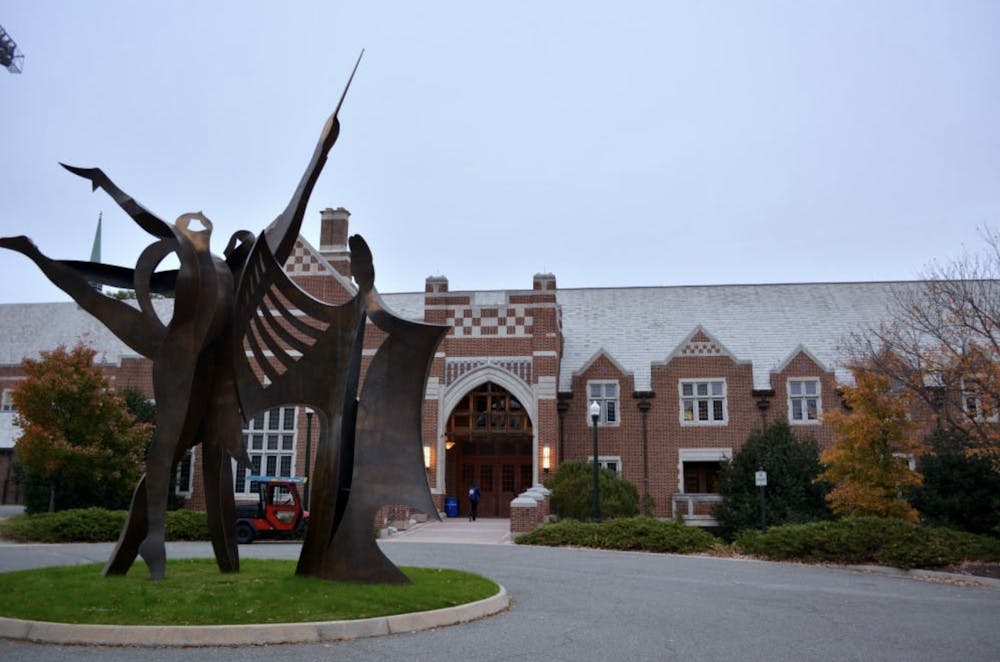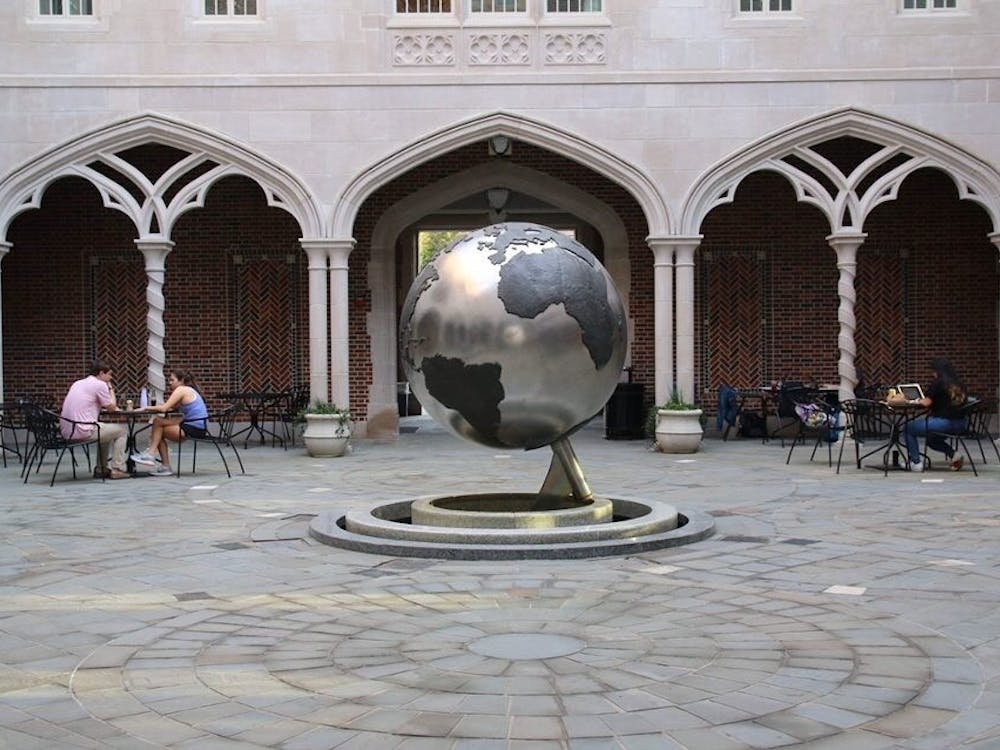As the election approaches, presidential historian Doris Kearns Goodwin emphasized the power of history to bring hope and the importance of truth at the 37th annual Weinstein-Rosenthal Forum on Faith, Ethics, and Global Society on Monday.
The Weinstein-Rosenthal Forum brought University of Richmond students and community members together with Goodwin, President Emeritus Edward Ayers and University Chaplain Craig Kocher at the Alice Jepson Theater to reflect on previous presidents and look toward the future.
“I think America has come through these things before, and that's why history gives us perspective,” Goodwin said.
Goodwin has spent over five decades studying presidents and won a Pulitzer Prize in history for her book on Franklin and Eleanor Roosevelt. Her book “Leadership in Turbulent Times” covers the lives of Presidents Abraham Lincoln, Theodore Roosevelt, Franklin Roosevelt and Lyndon Johnson. Her work on these four presidents focuses on how they became notable leaders and the qualities that made them successful.
“The quality that I think is so sadly missing in our politicians today is empathy,” Goodwin said.
She shared anecdotes about Franklin Roosevelt’s work with those who suffered from polio and Theodore Roosevelt’s exploration of the West. These experiences helped both presidents to develop an understanding of the nation and its needs and a sense of humility, Goodwin said.
“Everybody needs the drive for success, but at some point, better presidents’ ambition becomes something larger than simply for themselves. It becomes for their team, for their state, and eventually for their country and for the greater good,” Goodwin said.
Sophomore Quinton Jones attended the event because he found Goodwin’s prior interviews interesting.
“I liked her thoughts on leadership, and it also relates to my current class in American Political Science with Dr. Cherry,” Jones said. “I also enjoyed having my question read.”
The second half of Ayers’ interview featured questions submitted by students. Jones’ question asked about the nature of presidential elections and the electoral college.
Goodwin said that while we may not be able to address this with a constitutional amendment, something needs to change so the popular vote can be counted.
Another student question asked what can be learned from former presidents to help restore the public's trust in government. As the media and information landscapes have changed, Goodwin has become increasingly concerned about misinformation, she said.
Enjoy what you're reading?
Signup for our newsletter
“We need leaders whose words can be believed. We are in a place right now where words are just used for ambition's sake, dividing us and making us not trust ourselves, much less trust our leaders,” Goodwin said.
Throughout the interview, Goodwin explained current events in the context of her scholarship as a historian. As the election approaches, her work is especially relevant, Kocher said.
“We need history very much now, more than ever before.” Goodwin said.
Contact features editor Mary Margaret Clouse at marymargaret.clouse@richmond.edu
Support independent student media
You can make a tax-deductible donation by clicking the button below, which takes you to our secure PayPal account. The page is set up to receive contributions in whatever amount you designate. We look forward to using the money we raise to further our mission of providing honest and accurate information to students, faculty, staff, alumni and others in the general public.
Donate Now



